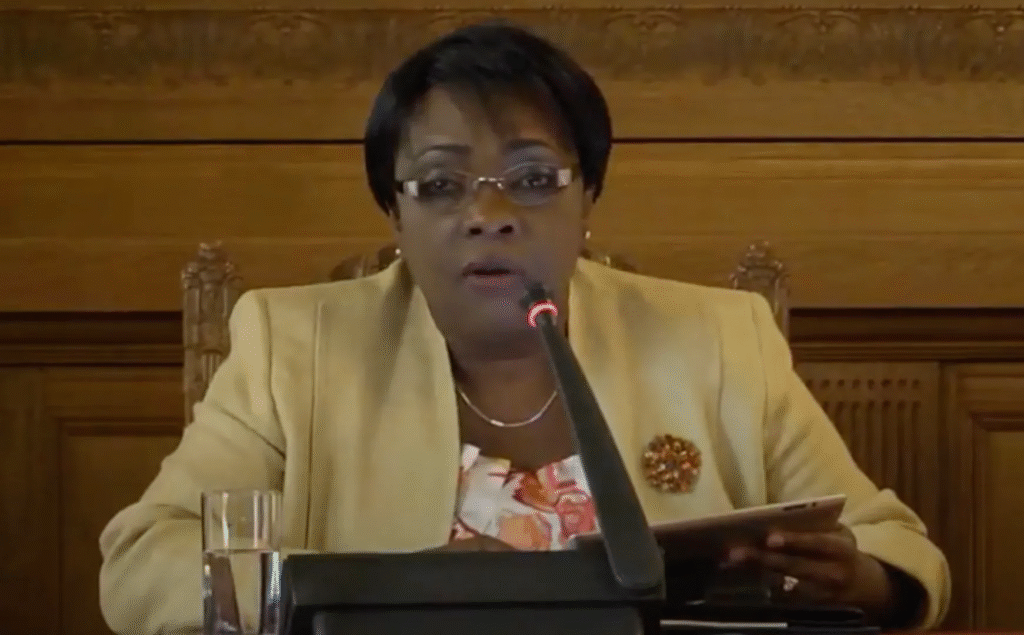
LONDON. A UK-based rights group is pushing for the removal of Ugandan Judge Julia Sebutinde from the International Court of Justice (ICJ) where she serves as vice president over alleged pro-Israel bias.
The Arab Organisation for Human Rights in the UK (AOHR UK) has formally petitioned ICJ judges to act under Articles 2 and 18 of the Court’s Statute, which require judges to uphold integrity, impartiality and independence.
The group pointed to Sebutinde’s recent remarks in a Ugandan church on August 10, where she openly declared her religious support for Israel.
“The Lord relies on me to stand with Israel… signs of the end times are appearing in the Middle East, and I want to be on the right side of history,” Sebutinde said.
She went further, urging her audience to closely follow events in Israel, adding: “I am convinced that time is running out, and I feel humbled that God has allowed me to be part of the last days.”
Justice Sebutinde 71, is the first African woman to serve on the world’s highest judicial body.
AOHR UK said such statements go beyond personal faith and amount to political and religious endorsement of Israel’s military campaign in Gaza, which has left tens of thousands people dead and many others maimed.
The group noted that her views mirror those of Israeli leaders who frequently cite biblical texts to justify military operations.
Sebutinde has also stood apart within the ICJ itself.
In January 2024, when the Court ordered provisional measures in South Africa’s genocide case against Israel, she was the only judge to oppose all measures, including the facilitation of humanitarian aid to Gaza.
Later, in July 2024, she issued a lengthy dissent against the Court’s advisory opinion declaring Israel’s occupation illegal — an opinion that leaned heavily on biblical narratives and dismissed the existence of Palestine as a legal entity.
Adding to the controversy, U.S. scholar Prof. Norman Finkelstein recently alleged that more than 30 percent of Sebutinde’s dissenting opinion was copied from online sources such as Wikipedia and the BBC, without attribution.
In Uganda, Sebutinde’s position at the ICJ has long been viewed as a national achievement, but her remarks are now stirring debate at home.
Supporters defend her right to express her faith, while critics warn that she risks undermining both her legacy and the credibility of the Court at a time when its rulings on Gaza carry global significance.
Justice Sebutinde is yet to respond to growing criticism .